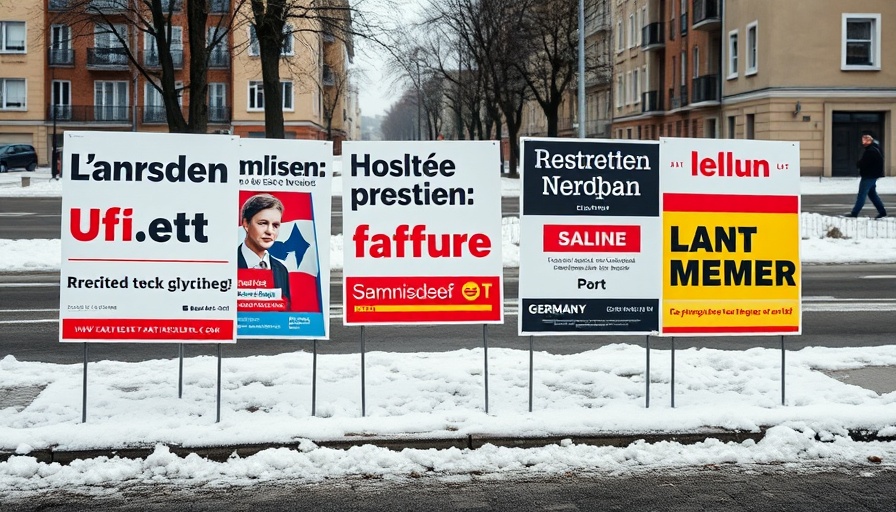
Germans Head to the Polls: Anticipating Far-Right Gains in 2025 Elections
On February 23, 2025, voters in Germany are heading to the polls to participate in potentially one of the most consequential federal elections in years. With earlier-than-anticipated elections following the collapse of the previous coalition in November, a significant shift in the political landscape is expected. The outcome seems poised to usher in a new leadership, potentially with far-reaching implications for Europe's largest economy.
Expected Outcomes: A Shift in Power
The Christian Democratic Union (CDU), led by Friedrich Merz, appears to be in a strong position, polling first ahead of the elections. If exit polls hold true, the CDU is set to claim a notable victory, possibly allowing Merz to become the new chancellor. In what could be viewed as a historic turnaround, the far-right Alternative für Deutschland (AfD) is expected to capture a remarkable second place, significantly increasing its support from just 10.4% last election to anticipated figures around 20.6% this time.
The Rise of Far-Right Popularity
The rise of the AfD, once relegated to the fringes of German politics, reflects broader trends of right-wing populism that are sweeping across Europe and beyond. According to reports, the party's increase in popularity is alarming some observers, especially given its association with radical views and extremist rhetoric. Alice Weidel, the AfD’s candidate, has capitalized on growing fears around immigration and security, resonating with a dissatisfied voter base.
Implications for Taxpayers
The shift towards more right-leaning policies, especially regarding immigration, may have implications for taxpayers, particularly those who run small to medium-sized businesses. Changes in government priorities can influence taxation policies, potential deductions, and benefits available to these businesses. Taxpayers should remain attentive to how coalition negotiations may impact future tax planning and strategic deductions available to them in the coming months.
A Call for Informed Engagement
As the polls close and results begin to pour in, it's essential for voters to stay informed about their elected representatives and the policies they intend to promote. While the rise of the AfD may represent a marked change in Germany's political framework, it also poses questions about democratic values and governance in a nation that has negotiated its path through difficult historical contexts. For taxpayers and business owners, engaging with this shifting landscape is crucial for navigating potential changes in taxation and public policy.
Conclusion: Stay Engaged with the Shifting Landscape
The results from this election will not only redefine leadership in Germany but also shape policies affecting taxpayers, businesses, and individuals. Monitoring these developments will be vital for understanding how to navigate future tax obligations and opportunities. One proactive approach may include exploring savvy strategic tax deductions that can minimize tax liabilities in an ever-evolving political landscape.
 Add Row
Add Row  Add
Add 




 Add Row
Add Row  Add
Add 

Write A Comment